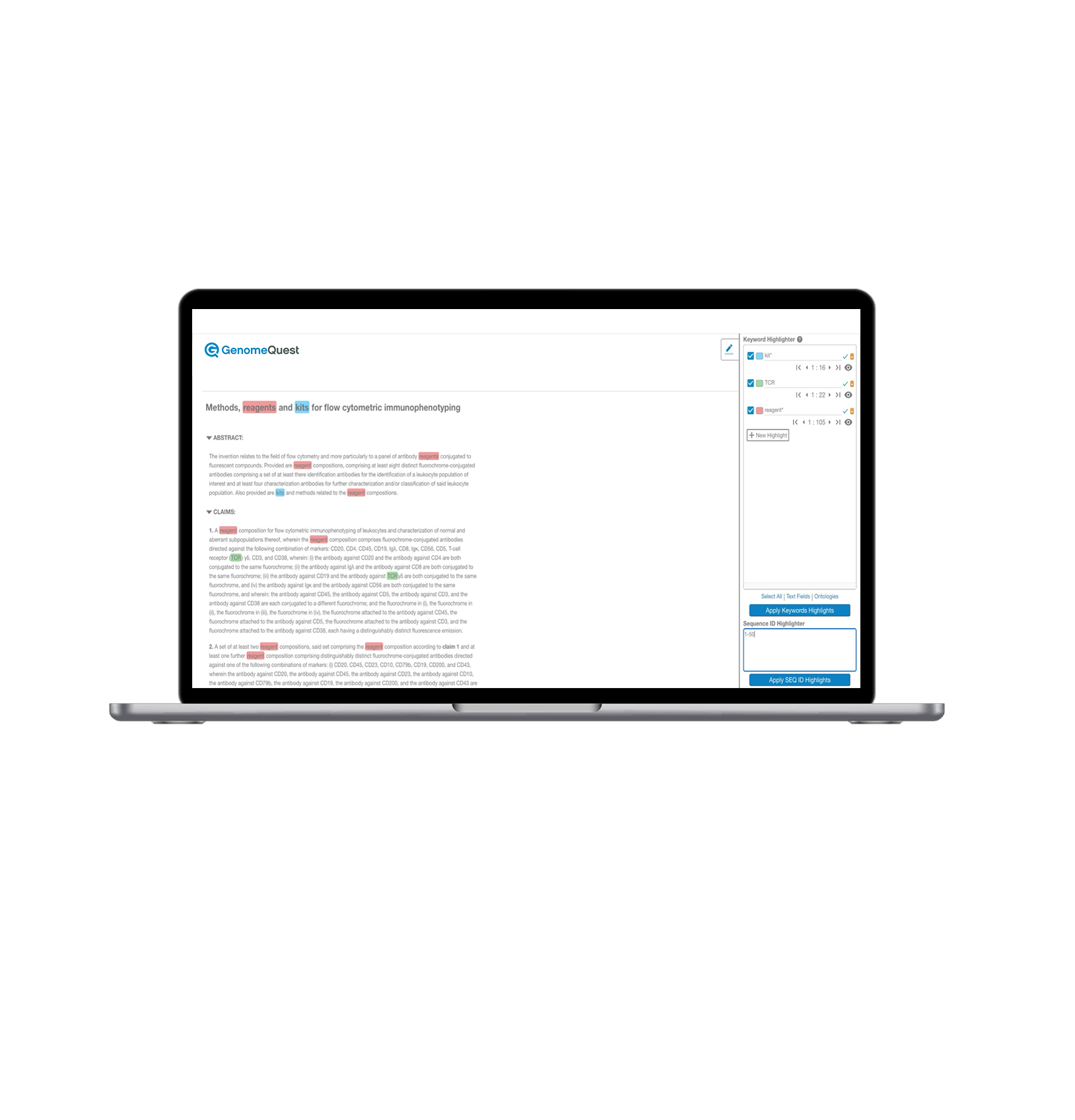Destacado en este post
Addressing 4 Risks of Free IP Sequence Search
Addressing 4 Risks of Free IP Sequence Search
Ago 14, 2023
 Henk Heus | Business Leader, Aptean GQ Life Sciences
Henk Heus | Business Leader, Aptean GQ Life Sciences
The adage that "the best things in life are free" certainly doesn’t apply when it comes to free intellectual property (IP) sequence searches. What would appear to be a efficient way to address increasingly complex search demands, represents a false economy and an approach to IP searching that isn’t risk-free.
What’s needed is a powerful, cost-effective and exhaustive method of searching for IP sequences. Enter Aptean. Make full use of our comprehensive database that’s user-friendly with relevant algorithms and the ability to keep searches efficient and private; providing the reassurance you need, as well as facilitating faster, more comprehensive searches. Using the right tools can assist in delivering all this and more, helping you to keep pace with even the most complex of search demands by providing effective searching capabilities that free IP sequence searches simply can’t replicate.
With all this in mind, let's uncover the main risks of free IP sequence searches, what you should be looking for in an IP sequence search tool and how using Aptean GenomeQuest can help to de-risk the entire process. Ultimately, you can be ensured you are using the right search tool for patent peace of mind.
1. Free Sources Are Incomplete: Make Your Search as Comprehensive as Possible
One of the biggest challenges in IP sequence searching is finding a reliable, complete and up-to-date source of patent information. In Life Sciences, IP is often the only way to protect your investment; searching incomplete data could put everything you’ve worked for at risk. Many of the free databases aren’t complete meaning such searches are of limited use and certainly not comprehensive. To answer business-critical questions, you need to ensure you’re working with a complete source of information—one which is continuously updated with data streams from patent offices all over the world as well as including the usable parts of databases like GenBank, European Molecular Biology Laboratory (EMBL) and DNA Data Bank of Japan (DDBJ).
For example, Aptean GenomeQuest provides extensive data coverage comprising over 560 million bio-sequences and more than 24 million Life Science full-text patent documents and is updated weekly. Compare this to the National Centre for Biotechnology Information (NCBI) with ~50 million sequences in its patent databases (a 10-fold difference) and Lens which is updated much less frequently and has 124 million fewer sequences than Aptean GenomeQuest. Also, Lens can only search one sequence at a time and, whilst NCBI can search more than one sequence at a time, the data is returned as individual searches without any relation between the runs making antibody searching untenable.
When using Aptean GenomeQuest’s powerful search tools, pinpoint accuracy and user-friendly functionality, you can search the entire sequence domain, both patent and non-patent, followed by combining sequence and full text document data giving you the utmost confidence in your searches.
2. Free Searches Are Stuck in the Wrong Algorithms: Search the Right Way
The most common error in free IP sequence searching is using a publicly available algorithm like BLAST to determine legal relevance which limits a search from the outset. It’s important to understand that BLAST, one of the most popular sequence search algorithms, has been created with biology in mind and is the wrong algorithm to answer an IP-related question.
Aptean GenomeQuest offers a complete set of industry-standard sequence comparison algorithms—including BLAST, MOTIF search and Fragment search—plus a proprietary GenePAST algorithm for percent identity calculations. GenePAST aligns the entire query sequence while minimizing the number of mismatches, insertions and deletions. It doesn’t use a statistical model or algorithm shortcuts while producing an objective and complete list of best possible results regardless of database or alignment size. Full-text can also be searched within patent documents using a robust search syntax that includes synonym lists based on ontologies.
3. Free Searches Are Static and Time-Consuming: Achieve Effective, Efficient Searches
Too often, sequence search applications present outcomes as a long, static list of alignments making it difficult to filter out the relevant information. You might end up printing everything out, going through the hits one-by-one and looking up related patent information online—a workaround that’s time-consuming, error-prone and inflexible. And, if the question changes, the whole search must be repeated.
A single sequence search against the Aptean GenomeQuest database typically takes less than five minutes to complete, and then presents the outcome of a search as an interactive and fully queryable list that contains information about the alignments, the sequences and the related IP documents. Compare this with NCBI, which requires you to click individual links to find out anything but the bare minimum about the hit with no real view configuration; or Lens, which although includes more information in its static report, does not group the data and is therefore very limited in its view configuration.
Through powerful analysis tools, Aptean GenomeQuest offers a vast range of flexible filters, intuitive summary views and graphical results charts for quick and easy searching and on-point results. This functionality can help you to get answers in minutes instead of days or weeks enabling you to do more searches earlier in the product development cycle whilst freeing-up search specialists and patent attorneys for other tasks.
4. Free Searches Are Not Private: Keep Searches Confidential
Communications between your web browser and unencrypted servers—which underpin so many free searches—are not private; being far from ideal when undertaking searches that are often of the most confidential nature. Confidentiality of IP searching is key and is something that can’t be guaranteed with a public, free-to-use service. Aptean GenomeQuest ensures all your data is handled and stored on a secure private network with communication between your browser and our servers fully encrypted with password protection for your user account.
In a highly competitive world, the ability to carry out efficient, comprehensive and confidential IP sequence searches is crucial. Aptean GenomeQuest can do just this, helping you to mitigate the privacy and confidentiality risks that are posed by free IP sequence search tools.
Aptean’s team of experts have in-depth experience with patent searching, as well as a focus on innovation and continuous improvements. It’s this combination that helps to ensure Aptean GenomeQuest continues to outpace other search tools on the market and provide confidence in your IP sequence searches.
For more information on how Aptean can help to optimize your IP sequence search capabilities, contact our team of experts today.
Listo para tu selección de búsqueda de secuencias de PI
Usa nuestra plantilla gratuita de solicitud de propuesta (RFP por sus siglas en inglés) para identificar la solución de búsqueda de secuencia de PI adecuada para tu empresa.



